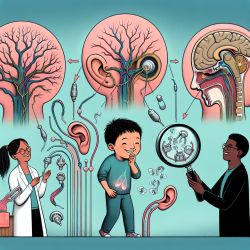As a practitioner dedicated to creating great outcomes for children, understanding the unique challenges faced by children of extremist parents is crucial. The research article "Children of extremist parents: Insights from a specialized clinical team" provides valuable insights that can inform your practice. This blog post summarizes key findings and suggests ways to implement these insights in your work.
Key Findings from the Research
The study explored the experiences of children whose parents were involved in violent extremism and identified several critical issues:
- Psychological Distress: Children exhibited high levels of psychological distress due to family separation, parental psychopathology, and conflicts of loyalty.
- Institutional Bias: Clinicians noted that religious extremist parents were often viewed more negatively compared to parents adhering to political extremism.
- Therapeutic Alliance: Building trust with parents and children was challenging due to distrust of health services and fear of legal repercussions.
- Educational Practices: Extremist parents' educational practices often included harsh discipline and indoctrination, leading to further psychological harm.
Implementing Insights in Practice
Based on these findings, here are some practical steps you can take to support children of extremist parents:
- Address Bias: Be aware of your own biases and those of your institution. Ensure that all children receive equal care regardless of their parents' ideologies.
- Build Trust: Establish clear boundaries between health services and security agencies to build trust with parents. Transparency about confidentiality is crucial.
- Trauma-Informed Care: Implement trauma and attachment-informed interventions. Understand that children may exhibit signs of distress through disruptive behaviors or symbolic play.
- Collaborate with Schools: Schools can be protective environments. Work with educational institutions to provide therapy in less stigmatizing settings and to monitor the child's well-being.
- Multi-Actor Partnerships: Collaborate with youth protection, mental health services, community organizations, and security agencies to create a comprehensive support system for the child.
Encouraging Further Research
While this study provides valuable insights, more research is needed to understand the long-term effects of growing up with extremist parents. Encourage your institution to support trans-sectional and longitudinal studies that focus on the medium- and long-term evolution of these children.
To read the original research paper, please follow this link: Children of extremist parents: Insights from a specialized clinical team.










